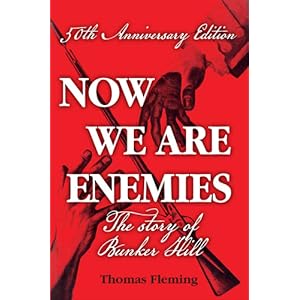History Catches Up With the Windsors

Amid the avalanche of commentary on The King’s Speech winning almost every Academy Award worth mentioning, no one seems to have noticed one of the more prominent losers: Edward, the Duke of Windsor, and his beloved bride, Wallis Simpson. It was Edward’s abdication as King Edward VIII to marry “the woman I love” that gave his younger brother George the crown. In the movie, Edward is portrayed as a bully who made George’s stutter worse every time he encountered him.
That portrayal is mild compared to the Windsor and Wallis in the just-completed Masterpiece Theater drama, Any Human Heart. In this story of the life of Logan Montstuart, a would-be great writer who is endlessly distracted by falling in love with too many women, he encounters the Duke and Duchess while he is an intelligence officer in World War II. By this time they are presiding over the Bahamas as Governor and Mrs. Governor General.
When Mountstuart attempts to investigate the murder of one of the Duke’s friends, the Windsors turn on him like a pair of Furies out of some ancient Greek drama, screaming insults and vowing revenge. It was apparently not an accident that Mountstuart’s next assignment was a mission to Switzerland, where he was arrested and spent a year in solitary confinement while the Duke’s secret allies inside the British establishment did nothing to win his release.
This imputation of duplicity, and something much darker, was not a surprise to me. By a strange sort of serendipity, stories of the Windsors have crossed my journalistic path several times. The first was told to me in the early 1950s by Fulton Oursler, the bestselling writer for whom I was working. In the 1930s, Oursler had been editor in chief of Liberty magazine, the third-largest weekly in the nation. He had met the Windsors and run a number of articles on them.
In late 1940, after France had fallen to Germany’s blitzkrieg and England teetered on collapse, Oursler received a cable from the Duke, asking him to come to the Bahamas immediately. He did so and was soon having the most alarming interview of his life. Windsor, with Wallis at his side, told Fulton he had been contacted by German agents who wanted to know if he were willing to become King of England after London surrendered.
Windsor’s answer was yes—and he wanted Oursler to have an article ready to publish that would help the American public understand that he was going to do his best to persuade the conquerors to be as lenient as possible to their new subjects. The appalled Oursler flew back to Washington D.C., where he demanded an immediate meeting with President Franklin D. Roosevelt. Oursler was an old friend, who had given FDR considerable help in his campaign for the Democratic nomination in 1932.
In an hour or so, Oursler was being ushered into the Oval Office. Before he could say a word, FDR said: “Calm down, Fulton. I know all about it. I’ve got a transcript of your chat with His Royal Highness here on my desk. We’ve got the SOB’s office thoroughly bugged.”
Later in the 1950s, I was executive editor of Cosmopolitan magazine. In those days Cosmo published articles that intelligent people wanted to read. I asked my brother, Eugene D. Fleming, a talented magazine journalist, to write an article on the Windsors, summing up their current status and state of mind.
Gene’s portrayal of the royal pair was devastating. He described how they wandered from Paris to Biarritz to New York to Palm Beach, guests of various members of high society. Everywhere they were bored and touchy, ready to resent the slightest hint of a lack of respect for Edward’s royalty. They ate at all the best restaurants and shopped at all the best stores—and never paid for anything.
The article’s climax told of the Windsors’ lunch at one of Paris’s four-star restaurants. The headwaiter bowed low before his royal highness and wondered if he would like to see a pencil that the eatery had distributed to all its English customers to celebrate Edward’s coronation in 1936. By all means, the Duke said, with what passed for a royal smile.
The head waiter produced the pencil. Unfortunately, it was now only about two inches long. But on top was still Edward’s crowned head. The Duke stared at it and whined: “Oh look, Wallis. I’m all whittled away!”